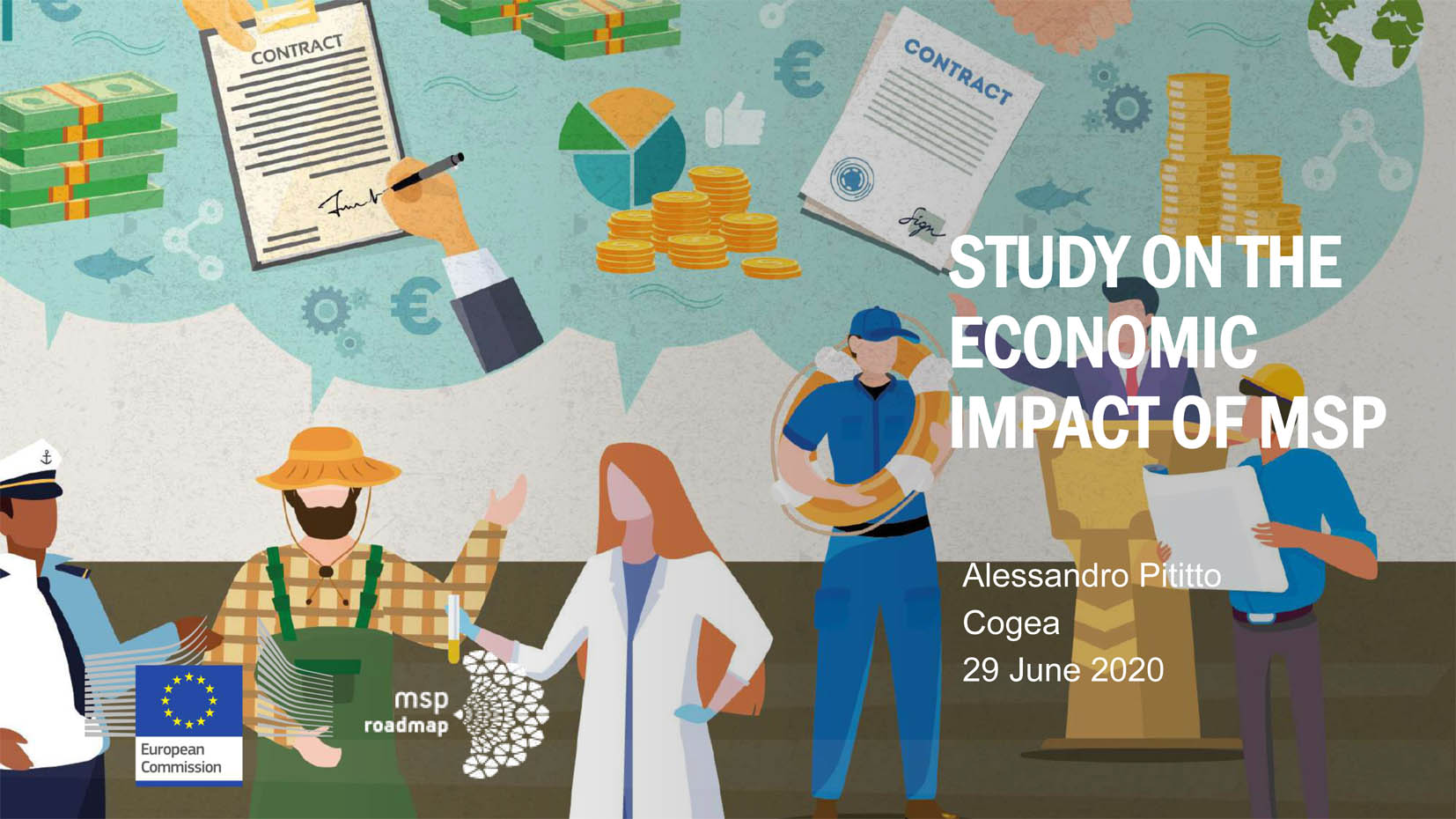
CCMS experts participated at the Online Seminar “MSProadmap - Economic Impacts of Marine/Maritime Spatial Planning” conducted on 29 July 2020 and jointly organized by the European Commission` European Commission’s Directorate-General for Maritime Affairs and Fisheries (DG MARE) and UNESCO’s Intergovernmental Oceanographic Commission (IOC-UNESCO).
More than 250 participants (59% female; 41% male) from 55 different countries attended the event. According to a poll, 42% of them had only some basic knowledge on the topic of the seminar while 44% had a solid background. The remaining 14% considered themselves as experts.
At the seminar, the results of the European Commission’s new study on the economic impact of Maritime Spatial Planning (MSP), carried out in the framework of the Joint Roadmap to accelerate MSP processes worldwide (MSProadmap), were presented.
Kicking off the event, Mr. Felix Leinemann, Head of Unit for Blue Economy Sectors, Aquaculture and Maritime Spatial Planning at the European Commission’s DG MARE, stated that with a turnover of €750 billion, the EU’s blue economy is in good health (EU Blue Economy Report 2020). As such, the ocean will play an important role in the transition towards a sustainable and carbon-neutral European economy, and represents a fundamental pillar for the implementation of the EU Green Deal.
Mr. Julian Barbière, Head of Section for Marine Policy and Regional Coordination at the IOC-UNESCO, mentioned that MSP contributes to the social, economic and environmental objectives of sustainable development. Nevertheless, a more robust methodology and knowledge base is necessary to achieve global targets such as the 2030 Agenda for Sustainable Development, one that includes the mainstreaming of economic impact assessment in MSP.
The European Commission, through its Executive Agency for Small and Medium-sized Enterprises (EASME) and European Maritime and Fisheries Fund (EMFF), has been implementing various actions and projects to support the implementation of the EU MSP Directive as well as building cross-border cooperation in MSP, providing an assistance mechanism to support Member States and carrying out studies looking into MSP-related issues.
Mr. Alessandro Pititto (COGEA, Italy) introduced the study and explained that it was carried out in countries and areas where MSP processes exist at different stages of development, which was important in order to examine diverse economic scenarios: Belgium, Germany (Baltic Sea), Scotland, Norway (North Sea and Skagerrak) and Rhode Island (USA).
MSP was shown to have several benefits, including increased stability, certainty and data availability, conflict resolution and reduced administrative burden. In 3 out of the 5 case studies, MSP has generated substantive total economic benefits (meaning direct, indirect and induced benefits). Generally, emerging sectors seem to be benefitting the most from MSP while traditional sectors shared that they often feel neglected. Nevertheless, while MSP may boost economy or act as a catalyst, it should not be expected to perform miracles – rather, MSP can be a perfect framework to have a flourishing blue economy.
Access to data and stakeholder interviews were also fundamental for the accomplishment of the study. On the topic of stakeholders, Mr. Pititto highlighted that it is important to involve them from the outset of the MSP process. He also argued that the way forward relies on more data and evidence, and that governments are in the best position to monitor that new data is being produced. The study provides EU Member States with additional information on how to maximize benefits from MSP.
The abridged version of the study on the economic impact of MSP can be found here. It was conducted by the European Commission as a contribution to Priority Action IV of the MSProadmap and was funded by the EMFF.
